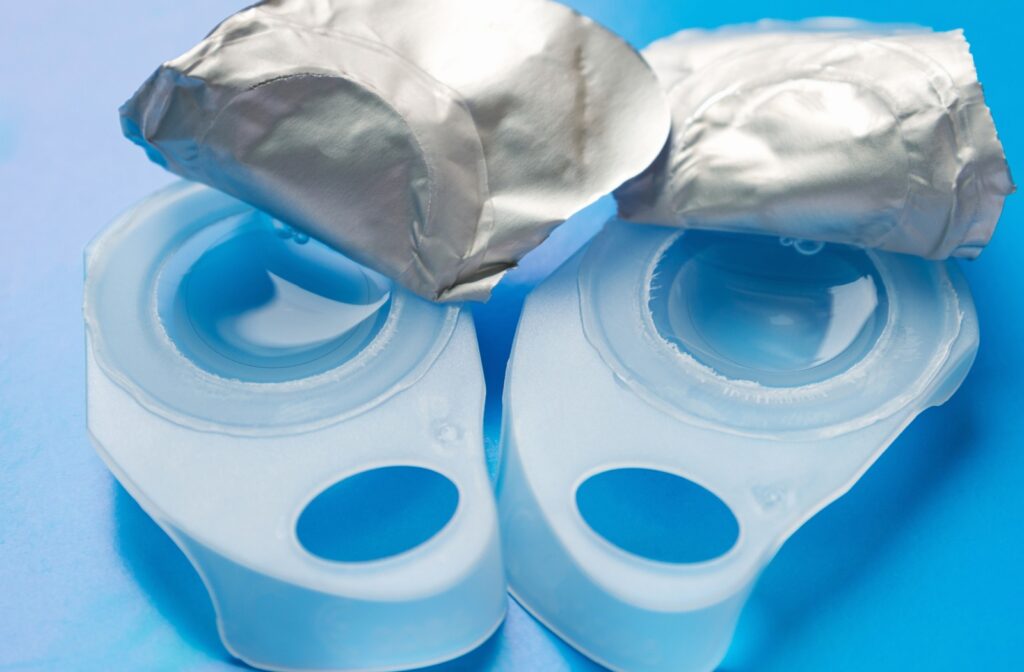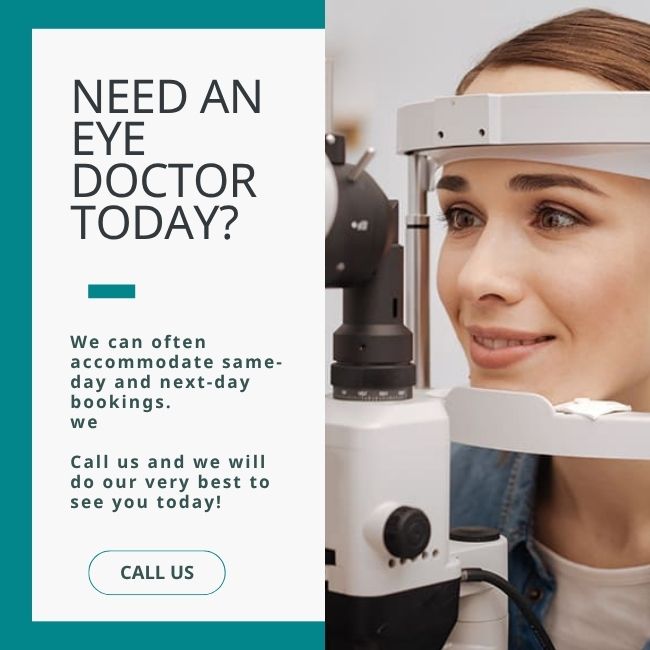If you’ve been stockpiling contact lenses or stumbled upon an old box you forgot you had, you might wonder if they’re safe.
Contact lenses do expire. If you take a closer look at their blister pack, you should see the lens expiration date. Shelf life depends on the type of lens and whether the lenses remain sealed in their packaging.
Contact lenses provide a certain freedom, but with this comes responsibilities. Proper contact lens handling is more than keeping your eyes comfortable; it’s about supporting sharp vision and solid eye health.
The Shelf Life of a Contact Lens
Contact lenses are popular for a reason! They’re natural, comfortable, and provide sharp vision correction without the bulkiness of glasses. Whether you’re loyal to contact lenses or would like a break from your glasses here and there, contact lenses require pristine care. This includes staying aware of their shelf life.
A contact lens’ shelf life depends on several factors, such as the lens type and the manufacturer’s packaging. Here’s a quick breakdown:
Soft Contact Lenses
Unopened soft contact lenses that remain sealed in buffered saline solution have an expiry date that ranges from 4 to 5 years from the manufacturing date. You can find this date on the individual blister pack and the packaging itself. Always check the expiration date before using them.
After opening a fresh pack of soft contact lenses, throw them away after the indicated timeframe:
- Daily Disposable Lenses: These lenses are designed for single use and must be discarded after one day of wear. They’re convenient and hygienic, as they eliminate the need for cleaning and storage, making them ideal for people with sensitive eyes or busy lifestyles.
- Bi-Weekly Lenses: Bi-weekly lenses can be worn daily for up to two weeks (14 days), provided they are cleaned and stored properly each night.
- Monthly Lenses: Designed to last for up to a month (30 days) with proper cleaning and storage, monthly lenses are a cost-effective option for regular contact lens wearers.
While bi-weekly and monthly contact lenses can be re-worn, using them beyond their recommended lifespan increases the risk of introducing harmful pathogens into your eye. Over time, even with proper handling, protein deposits can accumulate on the lens, leading to eye irritation and increasing your risk of infection.
Hard Contact Lenses (RGPs)
Rigid gas permeable (RGP) or hard contact lenses typically have a longer lifespan when stored properly. Their expiration date is usually determined by the care solution they’re stored in.
Always check the packaging for guidance.

Wearing Expired Contacts: The Risks
If you stumble upon a pair of expired lenses that are sealed in their blister pack or are tempted to use monthly contacts beyond their suggested 30-day window, stop.
Using expired contact lenses is not worth the risk, and here’s why:
- Bacterial and Fungal Infections: Expired lenses or saline solution (replaced every 90 days) can harbour harmful bacteria and fungi. These contaminants can cause eye infections such as conjunctivitis (pink eye) or, in worse cases, corneal ulcers.
- Irritation and Discomfort: Expired lenses may become dry, brittle, or misshapen, making them very uncomfortable to wear. They may also scratch your cornea, causing irritation or worse.
- Blurry Vision: Worn-out or expired lenses may not fit your eyes properly, leading to reduced effectiveness and blurry vision.
- Serious Eye Conditions: Using degraded or contaminated lenses could lead to more severe eye conditions, including keratitis or even vision loss in extreme cases.
If you feel severe discomfort or irritation after inserting your contact lenses, try to remove them and visit your optometrist right away.
Contact lenses should always feel comfortable and natural, almost as if they’re “barely there”. If your lenses feel far from comfortable, this could point to an underlying concern that warrants a closer look.
Proper Contact Lens Wear & Care
There’s always one habit to keep in mind when wearing contact lenses: always follow proper lens care procedures. Simple but effective, this rule can help you avoid the risks associated with improperly handled or expired lenses.
Here are a few quick tips:
- Check Expiration Dates Regularly: Before opening or wearing a pair of lenses, double-check the expiration date stamped on the packaging.
- Follow Storage Guidelines: Store your unused lenses in a cool, dry place, away from direct sunlight, to maintain their sterility.
- Avoid tap water and saliva: Never rinse lenses with non-sterile liquids. It can introduce harmful pathogens to the lenses. Always place your lenses in fresh contact lens solution.
- Use Fresh Solution: If you’re wearing reusable lenses, use fresh cleaning solution to clean and store your lenses. Never reuse old solution, and replace it every 90 days.
- Replace the storage case: Bacteria can accumulate in your lens case, so clean it daily and replace it every 1–3 months.
- Replace as Directed: Stick to the replacement schedule recommended by your optometrist or the lens manufacturer. Daily disposables should be discarded after one day of use, while bi-weekly or monthly lenses should be replaced accordingly.
Perhaps the most important reminder: schedule annual contact lens exams and fittings. More than updating your vision prescription, these exams are a must for everyone, especially if you’re looking to replenish your contact lens supply.
Contact lens prescriptions are only valid for one year. Annual check-ins allow us to evaluate your eye health and verify that your lenses still fit.
Keep Your Contact Lenses Fresh
Contact lenses are a great tool for clear and convenient vision, but they need to be used responsibly. You can always replenish your lens supply, but your eyes are one of a kind. Give them the care they deserve, and practice proper handling habits.
If you’re unsure about the status of your contact lens prescription or you’re running low on your lens supply, Trinity Hills Eyecare is here. Connect with our team to book an appointment for your contact lens exam and fitting, and stay on top of your eye health.




